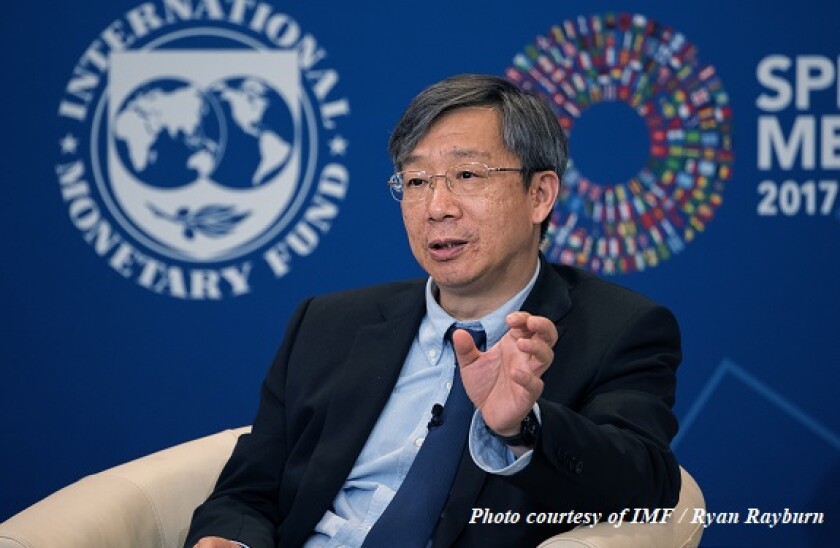Central bank responses to the coronavirus have typically been of the kitchen sink variety: emergency interest rate cuts, huge asset purchases, broad statements to do whatever it takes. Not so in China. The People’s Bank of China has taken a careful, considered approach.
That already looks smart. China’s ability to deal with the pandemic better than many other large countries, partly because it was the first to know quite how big the problem was, has meant the number of infections has been kept relatively low in the mainland. The economic impact has also been contained: China is one of the few economies in Asia that looks likely to grow this year.
But it is from a long term view that the PBoC’s conservative approach under governor Yi Gang looks even better. The problem with central banks unloading their monetary bazookas is that their ammunition, once fired, proves very difficult to put back in the chamber. Asset purchases, even more than interest rate cuts, are incredibly difficult to unwind without unintended consequences.
That doesn’t mean other central banks were mistaken to take an all-or-nothing approach. But it does highlight one of the key strengths of the PBoC — its ability to get help from the country’s huge state-owned banks when attempting to stimulate the economy.
After a mix of deferred loan repayments, lower lending rates and reduced fees, China’s big four state-owned banks all saw their first half profits drop by more than 10%. Most analysts put that down to government urging to “sacrifice profits”, rather than the harsh impact of the pandemic itself.
There have been serious monetary policy moves, of course. The PBoC has cut the reserve requirement ratio, created new re-lending and re-discount windows and injected billions of dollars into the banking system through repo operations.
But the PBOC has been careful not to overstep, seeing its role not as the saviour of the financial system but as just one of many stakeholders that need to step up — albeit the most important one. That approach could not work in many countries but it has worked marvellously in China
